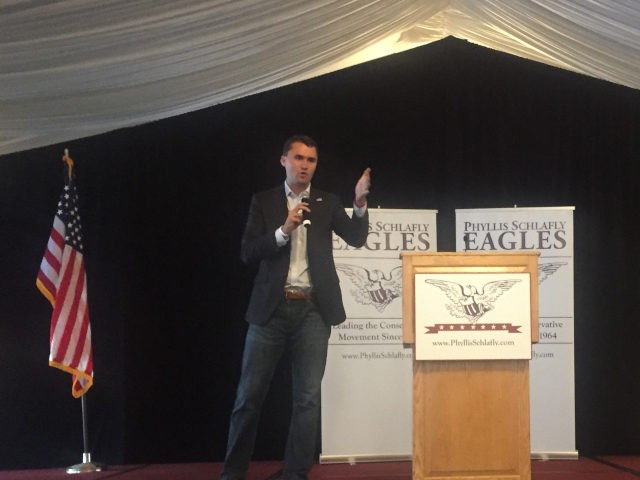Charlie Kirk’s new book, Campus Battlefield, is an excellent resource to gain a better understanding of what is happening on America’s campuses at the hands of progressive administrators, authoritarian professors, and out of control leftist students.
Charlie Kirk, the founder and president of the student activist organization Turning Point USA (TPUSA), and has written a new book — with a forward by Donald Trump Jr. — titled Campus Battlefield: How Conservatives Can WIN the Battle on Campus and Why It Matters.
Campus Battlefield is a useful tool for those seeking to understand how and why higher education has regressed in recent years, and why it is important to pay attention to it even if the reader is not in college or sending a child to college any time soon.
In 160 pages, Kirk packs in countless real-life examples, shocking student surveys, and strange concepts that have somehow become normal on college campuses.
Kirk begins by noting that he was shocked upon realizing he would need security in order to do something as simple as deliver remarks in front of an audience at a university.
It is also important to note that this realization — as well as every other example in Kirk’s book — is not isolated to one, or even a few schools. It is, unfortunately, true at an ever-growing list of universities across the country.
Universities were once a beacon of free speech, but today, measures are being put in place to stifle speech under the guise of protecting students. Kirk laces his book with not on his personal confrontations with these policies but those of the student members of TPUSA.
Today, speech is subdued by creating and implementing concepts such as “free speech zones,” “safe spaces,” and “trigger warnings,” among many others. These all act to censor speech and shield students from hearing opinions that differ from their own.
As Kirk puts it, “How odd is it that the very institution that historically has been the champion of free speech should be the most enamored with the idea of confining speech to prescribed holding pens.”
In Campus Battlefield, Kirk cites an example from August 2017, when the University of Nebraska-Lincoln TPUSA chapter president Kaitlyn Mullen was told to move to a “free speech zone” on campus.
A free speech zone, Kirk explains, is a small area on campus in which students are told is designated for free speech. This insinuates that the First Amendment is null and void in all other areas on campus.
Mullen had set up a TPUSA table outside off the free speech zone, and was protested by professors as a result. The police arrived, as well as campus security, who then told Mullen to move to the area designated by the school, despite the fact that Mullen was standing on public property.
This is just one of many such incidents occurring on college campuses across the country. These situations instill fear and intimidation, and predispose conservative students to stay silent about their beliefs.
Meanwhile, apolitical students observing such incidences are programmed with the belief that conservative ideas are unpopular, or even harmful, which leads these students to express left-leaning viewpoints to avoid the backlash that they see others receive for deviating from what is perceived to be “normal.”
Campus Battlefield goes on to divulge more shocking and unfortunate realities surrounding today’s higher education. On a positive note, however, the author adds that the battles can be won.
Kirk seeks to fill the void of intellectual diversity on campuses by engaging in dialog that many students otherwise would never have had the chance to experience in the classroom. Kirk even notes that he is beginning to see changes, as more students approach him with queries, rather than in outrage.
After 5 years of doing campus organizing and speeches, I have learned that most college students are not opposed to conservative ideas, instead they are never properly exposed to them in the first place
— Charlie Kirk (@charliekirk11) January 23, 2018
It is of paramount importance that students understand basic, unalienable rights, such as the First Amendment.
While Kirk himself is conservative, support for the First Amendment should never have become a “conservative vs. liberal” issue on college campuses. The fact that it has become an ideological issue is strong testimony to how far higher education has fallen, and that these issues need to be addressed.
If not, then students will be in for a rude awakening upon graduating college, as they try to adjust to the real world that has been operating differently all along.
Or, worse, future graduates might attempt to change their surroundings in the workplace and elsewhere — as seen in Silicon Valley — so that the rest of society can begin to reflect the world that many have grown accustomed to on campus.
Charlie Kirk’s new book, Campus Battlefield, is avialable for sale in bookstores and on Amazon.
Disclaimer: The author for this article is a former employee of Turning Point USA.
You can follow Alana Mastrangelo on Twitter at @ARmastrangelo and on Instagram.

COMMENTS
Please let us know if you're having issues with commenting.